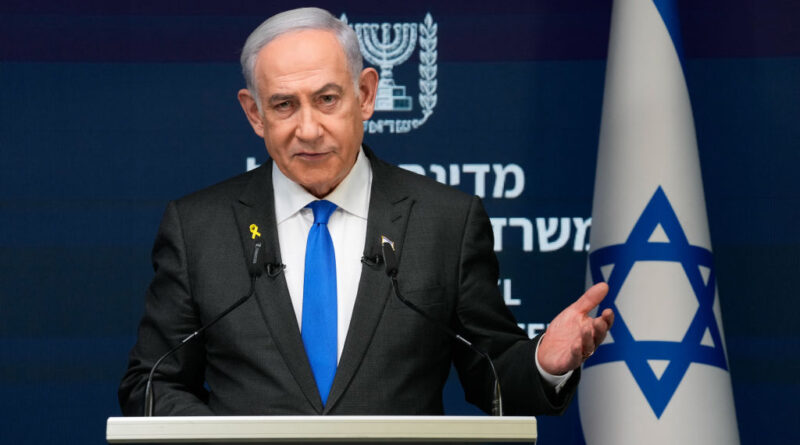Israel Delays Prisoner Release Due to Hamas’s ‘Persistent Violations’
Netanyahu’s office stated that the release is indefinitely postponed until Hamas can ensure that the next hostage release will be conducted ‘without the humiliating ceremonies.’
Israel made public on Sunday that the release of 602 Palestinian prisoners set for Feb. 22 is delayed, coinciding with Hamas freeing six more Israeli hostages in what Israel described as “humiliating” conditions.
This exchange marked the conclusion of Israeli hostage releases in the initial phase of the fragile cease-fire agreement.
Netanyahu responded to the incorrect return of the body with a video statement, promising repercussions for the violation.
“We will take decisive action to bring Shiri home, along with all our hostages—both those alive and deceased—and ensure that Hamas faces the full consequences for this cruel and wicked violation of the agreement,” he declared.
Bibas’s body was returned the following day, Feb. 21, after positive identification, revealing that Bibas was also killed in Gaza alongside her two young sons while in captivity.
The bodies of the sons, returned and positively identified, indicated that the boys had been murdered by manual means around November 2023, with attempts made by the terrorists to conceal the evidence, as reported by the Israel Defense Force (IDF).
Hamas refuted the allegations of murder, claiming that Bibas and her sons were killed in an Israeli airstrike early in the conflict. Israel’s forensics expert stated that there was no evidence of Bibas perishing in an explosion. Neither Israel’s nor Hamas’s claims have undergone independent confirmation.
Netanyahu’s office affirmed in its statement on Feb. 23 that the Palestinian prisoner release is postponed indefinitely until the “next hostage release is assured, without the humiliating ceremonies.”
On Saturday, dozens of masked Hamas operatives paraded hostages in front of mocking crowds in Gaza; two hostages in one location and three in another, with the sixth being released quietly later in the day. All six hostages were transferred to the Red Cross for transportation to Israel.
The trio in the second group had been attired in military uniforms, despite not being soldiers at the time of their abduction. They were taken into Gaza during Hamas’s assaults at the Nova music festival on Oct. 7, 2023.
Two of the hostages released on Saturday had been held in Gaza for approximately a decade. Hisham al-Sayed, 36, and Avera Mengistu, 39, both had a history of mental health issues, as per family statements and a Human Rights Watch report from 2017.
Mengistu, Ethiopian-born and resident of Ashkelon in southern Israel, crossed into Gaza near a beach in September 2014, while Sayed, a Bedouin with Israeli citizenship residing in the Negev desert, entered Gaza from the east in April 2015.
Although Hamas had previously labeled them as soldiers, Human Rights Watch clarified that neither had affiliations with the Israeli government or military, noting that both were accustomed to long-distance walking by foot. The reasons for their entry into Gaza remain unknown.
Reportedly, about 50 of the 602 Palestinian prisoners in the exchange were serving life sentences for lethal attacks against Israelis.
Among them is Hamas leader Ammar Zaban, who led the al-Aqsa Martyrs’ Brigades during the Second Intifada. He faced 27 life terms for his involvement in multiple terror incidents, including the 1997 suicide bombing at Jerusalem’s Mahane Yehuda market, which resulted in 16 fatalities.
An additional 60 prisoners were serving extended sentences, 47 were rearrested following a 2011 exchange for captive IDF soldier Gilad Shalit, and 445 detainees from Gaza were never charged following the Oct. 7 attack.
This week, Hamas is expected to release four more bodies, the remainder of the 33 hostages slated for return in phase one of the agreement, provided that negotiations progress smoothly.
Reuters contributed to this report.





